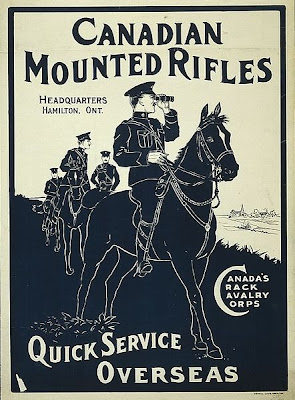Now I have written quite extensively about British Home Children and my great uncle. He was one of the 100,000 British children who were sent to Canada to start a new life by organisations dedicated to saving the poor.
His early life was not an easy one. He was in care from the age of four, knew little about his father and narrowly escaped a term in a naval boot camp, preferring to cross the Atlantic in the May of 1914 and settle on a farm in Canada.
This would have been a challenge to any urban child and so it was with my great uncle who did not adjust to his new life. Instead after three placements which all proved unsuccessful he ran away in the August of 1915 and joined the Canadian Expeditionary Force.
Like many young men he lied about his age and unlike many he discarded his given name and adopted a new one, and as if to further distance himself from his old life, he claimed both parents were dead, and gave as his next of kin his aunt.
This should have made searching for him difficult. But the Library and Archives Canada which is similar to our own National Archives proved a goldmine of detail, they can be accessed at www.collectionscanada.gc.ca
Here were his Attestation papers which were the first official document a young recruit signed. For the historian and the family researcher they are the first port of call in summoning up a young man’s military career. Here can be found biographical details, physical description and names and addresses of next of kin.
These are valuable enough but in the case of my great uncle give an insight into what he was thinking when he enlisted and how he wanted to be seen.
Clearly lying about his age got him into the army and changing his name ensured the organisation that brought him over to Canada could not track him.
I am not sure why he lied about his parents. I guess because he had last seen his father when he was 4 and it was easy to assume him dead. But his mother he knew to be alive, having briefly lived with her a year before. Perhaps it was the circumstances of him being taken back into care because his mother “was unfit to have control” and given this it was easy to draw a line under family ties. But then having decided against a factious brother he named his real aunt citing her correct address.
The Canadian war archives have not suffered from damage from German bombing in the Second World War and so are complete, which meant it was possible to follow his career from enlistment and training camp in England to his time on the Western Front.
His personal records do not give any detail beyond his court martial’s, his units and his eventual demob. But sitting alongside these records are the War Diaries which each regiment had to complete. They describe the day to day actions of the unit both under fire and at rest which means it is possible to gain an insight into what men like my great uncle had to endure.
Picture; Recruitment poster for the Canadian Mounted Rifles, from Library and Archives Canada

No comments:
Post a Comment